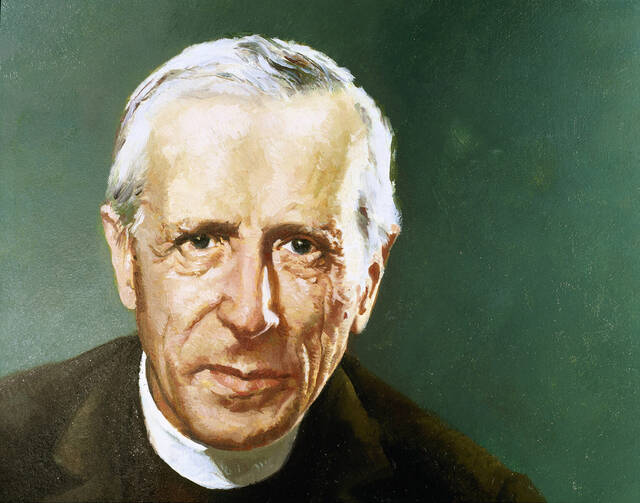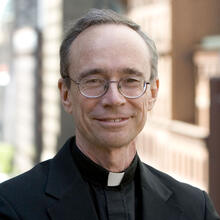(RNS) — In the history of the Catholic Church, too many innovative thinkers were persecuted before they were accepted and then embraced by the church.
The list includes St. Thomas Aquinas (whose books were burned by the bishop of Paris), St. Ignatius Loyola (who was investigated by the Spanish Inquisition) and St. Mary MacKillop (an Australian nun who was excommunicated by her bishop for uncovering and reporting clergy child sex abuse).
It’s not surprising, then, that a French Jesuit scientist, Pierre Teilhard de Chardin, who tried to bridge the gap between faith and science, got himself in trouble with church officials and his Jesuit superiors in the 20th century. Only after his death was he recognized as the inspired genius that he was.
His story is magnificently told in a new PBS documentary, “Teilhard: Visionary Scientist,” which was produced by Frank Frost Productions in a 13-year labor of love. It took Frank and Mary Frost to four countries on three continents, a total of 25 locations, and included more than 35 interviews.
Teilhard was born in 1881, entered the Jesuits in 1899 and was ordained a priest in 1911. His father nurtured in him a scientific curiosity, and he studied geology, botany and zoology at the University of Paris, ultimately becoming an eminent paleontologist who was involved in the discovery of the Peking Man.
If he had stuck to science, he would have led the quiet life of a scholar, but it was his attempt to bring together science and faith that got him in trouble. He went beyond the traditional argument that faith and science were not in conflict and used science as an input to theology and spirituality. Thus, his writings on Christ were enhanced by an evolutionary perspective.
He was not allowed to publish during his lifetime, although some manuscripts did circulate among friends and colleagues. Luckily, his literary executors were laypeople, not Jesuits, or his papers would have been buried in the archives.
After his death in New York City, “The Phenomenon of Man” (1955) and “The Divine Milieu” (1957) were published, leading to a condemnation of his writing by the Congregation for the Doctrine of the Faith in 1962.
His influence grew at and after the Second Vatican Council. Even Benedict XVI picked up on his thinking in an Easter homily where the pope spoke of the risen Christ as the next step in human evolution.
Teilhard believed that “(s)omeday, after mastering the winds, the waves, the tides and gravity, we shall harness for God the energies of love, and then, for the second time in the history of the world, we will have discovered fire.”
“Teilhard: Visionary Scientist” tells this story well, with historical photos and onsite video of places where Teilhard lived and worked, including China. His important influence on theology is revealed through interviews with theologians and others who have been touched by his writings.
The film is a great opportunity to learn about a man who is still influencing the development of theology today.
“Teilhard: Visionary Scientist” will premiere on Maryland Public Television on May 19 and be available for national and international streaming for two years, beginning on May 20, on the free PBS app.
Another PBS documentary being released this month is “Hollywood Priest: The Story of Fr. ‘Bud’ Kieser” by Paulist Productions, which is also working on “Statue of Limitations: Father Serra and the California Natives.”








